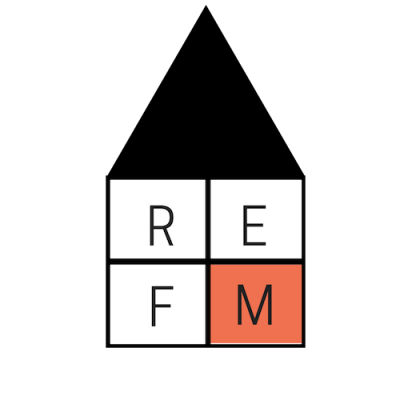Diving into the world of condominium living can be exhilarating. However, one topic that can seem murky to potential condo owners is the condo maintenance fee. But worry not! This guide sheds light on everything you need to know about condo fees, from understanding what they cover to evaluating if they’re priced fairly. Stick around to understand better why every condo owner should be well-versed in these details. Is condo living right for you? Let’s find out.
1. What is a Condo Fee?
A condo fee, also known as strata fees in some regions like Quebec or co-ownership fees in other parts of the world, is a monthly or annual fee every condo owner must pay. This fee helps with the upkeep of the condo building, ensuring that amenities remain functional and that the common areas are well-maintained. Owning a condo does come with their own unique expenses – depend on the type of amenities in the building.
2. What Do Condo Fees Cover?
Condo fees cover a variety of expenses, including:
- Building Maintenance: This includes regular maintenance of common areas, snow removal, and major maintenance work when things break down and need to be fixed.
- Amenities: Whether it’s indoor and outdoor swimming pools, fitness centers, or communal lounges, a portion of your condo fees goes towards these amenities’ maintenance costs.
- Utilities: Some condos include utilities like water, heat, cable, or internet in their monthly condo fees, while others may not. It’s crucial to know what’s included in your condo fees and what isn’t.
- Reserve Fund Contributions: This is a critical portion of your condo fees that is set aside for future major repairs or replacements in the condominium.
3. Are Condo Fees Mandatory?
Yes, condo fees are mandatory for every condo owner. They are non-negotiable fees that every condo owner is responsible for. These fees are used to cover the cost of maintaining the property, ensuring a pleasant living experience for all residents.
4. How Much Do Condo Fees Cost on Average?
Condo fees can range anywhere based on the size, location, amenities, and the age of the condominium. For instance, a new condo in a prime urban location with numerous amenities might have higher condo fees compared to a smaller condo in a less-central area. On average, across Canada, the average fee might be around $250 per month, but it’s always essential to consult with a real estate agent to get specifics.
5. How Do Condominium Fees Work?
Condo fees are typically calculated based on the square footage of an individual condo and are charged monthly. This charge is NOT included in your monthly mortgage payment. This means that if your unit is larger, you might end up paying a higher fee. These fees are used to pay for building maintenance, upkeep of common areas, and contributions to the reserve fund.
6. Why is a Reserve Fund Important?
A reserve fund is essentially a savings account for the condo corporation. A portion of your condo fees goes into this fund and is used for significant repairs or replacements. Think of it as an emergency fund for the building; when unexpected issues arise, the reserve fund ensures that the condominium has the necessary funds to address them without imposing additional fees on the residents.
7. What’s the Deal with Special Assessments?
Special assessments are fees that are charged to condo owners in addition to their regular monthly fees. They arise when unexpected repair or maintenance costs exceed what’s available in the reserve fund.
8. The Monthly Condo Fee Breakdown
A monthly condo fee typically consists of:
- Building maintenance and repairs.
- Utility costs (if they are included).
- Upkeep of amenities.
- Contribution to the reserve fund.
- Administration costs. It’s important to note that each condo corporation might have a slightly different breakdown, so always be sure to ask for a detailed list.
9. Beware of HOA Fees and How They Differ
HOA (Homeowners Association) fees are similar to condo fees, but they are usually associated with townhouses or single-family homes in a community. The services and amenities covered might differ slightly, so always clarify what you’re paying for.
10. Why You Should Be Wary of Condo Fees That Are Too Low
While lower fees might seem attractive, it’s essential to be cautious. Fees that are too low might indicate a lack of funding for essential
maintenance or a depleting reserve fund. In the long run, this could result in higher special assessments or increased fees in the future.
Tips for Managing and Budgeting for Condo Fees
Managing and budgeting for condo fees can be easier if you follow these helpful tips.
First, make sure you understand what’s included in your condo fees. This will help you plan your budget accordingly.
Next, create a monthly budget that includes your condo fees as a fixed expense. This will ensure that you set aside enough money each month to cover the fees.
It’s also a good idea to set up automatic payments for your condo fees to avoid any late fees or penalties.
Additionally, try to save some money each month for unexpected expenses or special assessments.
Finally, stay informed about any changes or increases in your condo fees by attending meetings and reading updates from your condo board.
Frequently Asked Questions
Are Condo Fees in the GTA Tax Deductible?
Are condo fees in the GTA tax deductible? No, condo fees are not tax deductible in the GTA. They are considered personal expenses and cannot be claimed as a deduction on your tax return.
Can Condo Fees Be Negotiated With the Condo Board?
Yes, condo fees can be negotiated with the condo board. It’s worth discussing your concerns and exploring any potential adjustments that can be made. Open communication is key in finding a solution.
What Happens if a Condo Owner Cannot Afford to Pay Their Condo Fees?
If you can’t afford to pay your condo fees, you may face consequences such as late fees, interest charges, and even legal action. It’s important to communicate with your condo board to find a solution.
Do Condo Fees Increase Every Year?
Yes, condo fees typically increase every year. They cover the cost of maintaining the building and its amenities. It’s important to budget for these increases to avoid any financial surprises.
How Are Condo Fees Determined for Each Individual Unit in a Building?
Condo fees for each unit in a building are determined based on various factors such as the size of the unit, shared amenities, maintenance costs, and reserve fund contributions.
Key Takeaways:
- Condo fees are mandatory monthly or annual fees every condo owner must pay.
- These fees cover building maintenance, amenities upkeep, utilities, and contribute to the reserve fund.
- Always be wary of condo fees that seem unusually low; it might indicate potential issues down the road.
- Special assessments are additional fees on top of the monthly condo fees and arise when there’s a shortage of funds for necessary repairs or maintenance.
- Understand the difference between condo fees and HOA fees, as they cater to different types of properties and might cover various expenses.
By understanding these nuances of condo living, you can make informed decisions and enjoy a seamless condominium experience. Whether you’re a first-time condo buyer or a seasoned investor, having this knowledge is invaluable.






Eva Farquharson
I came across your site wanting to learn more and you did not disappoint. Keep up the terrific work, and just so you know, I have bookmarked your page to stay in the loop of your future posts. Here is mine at 85N about Cosmetic Treatment. Have a wonderful day!